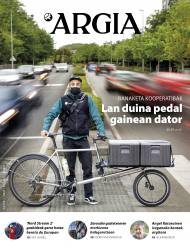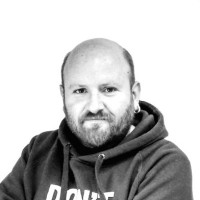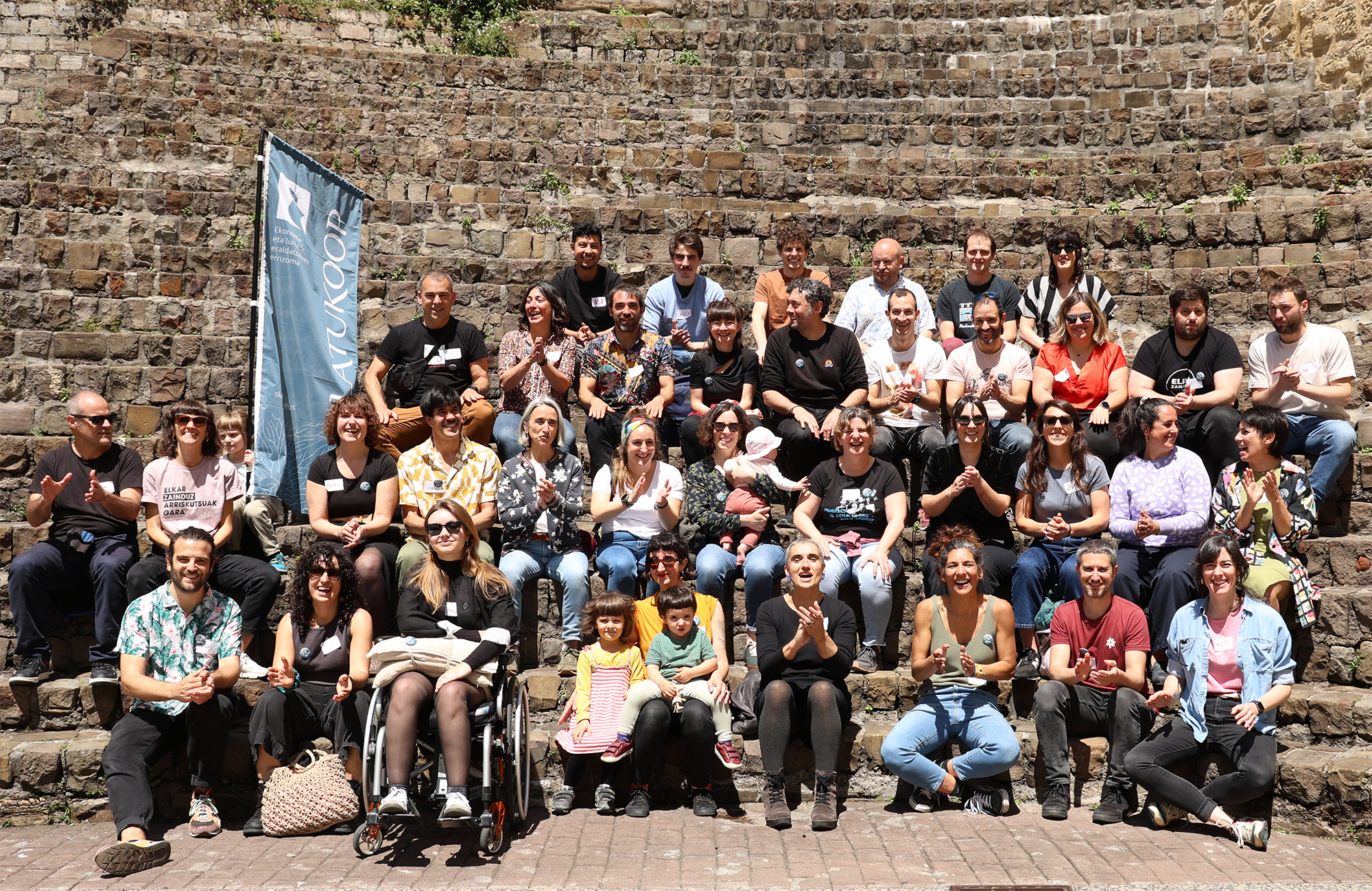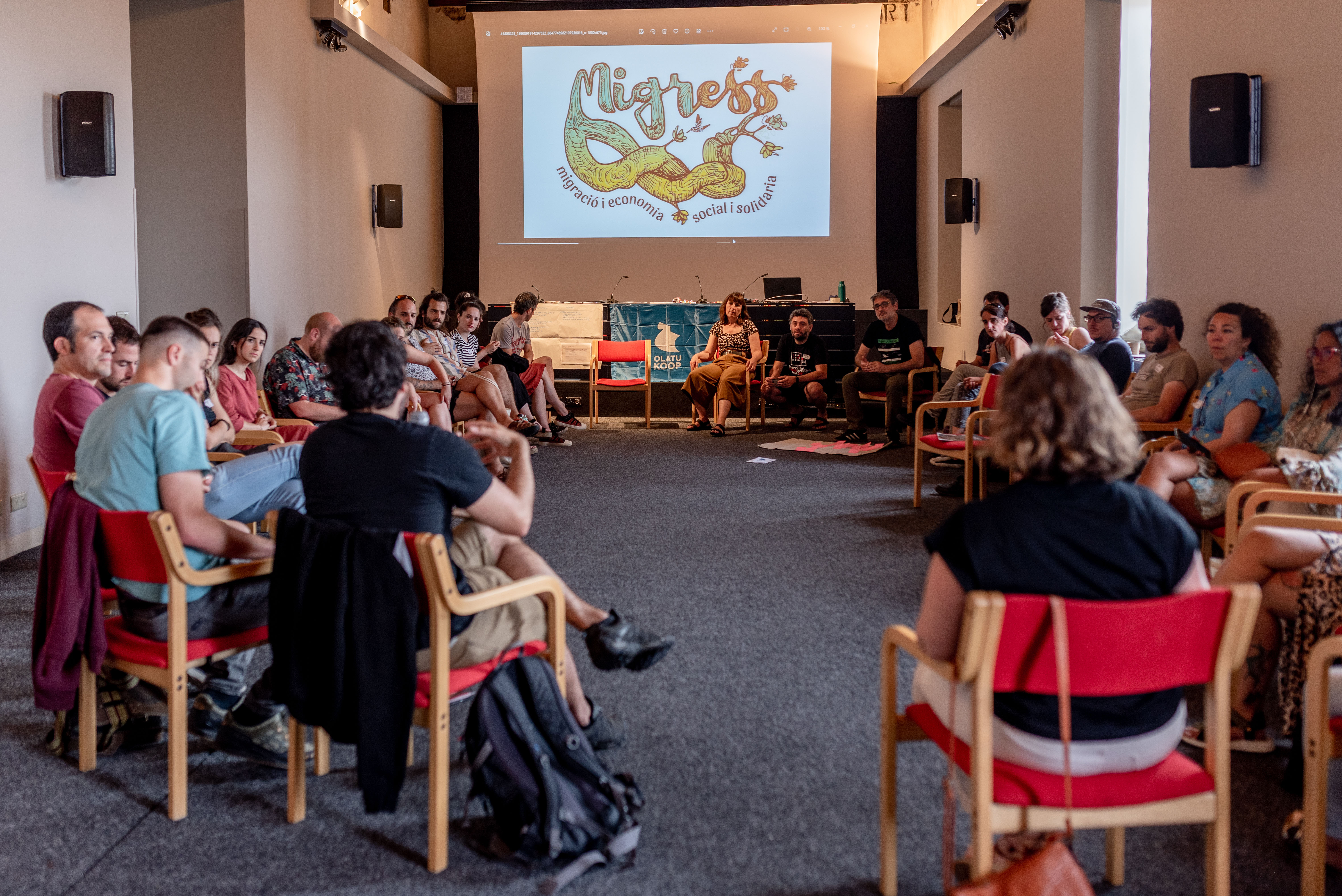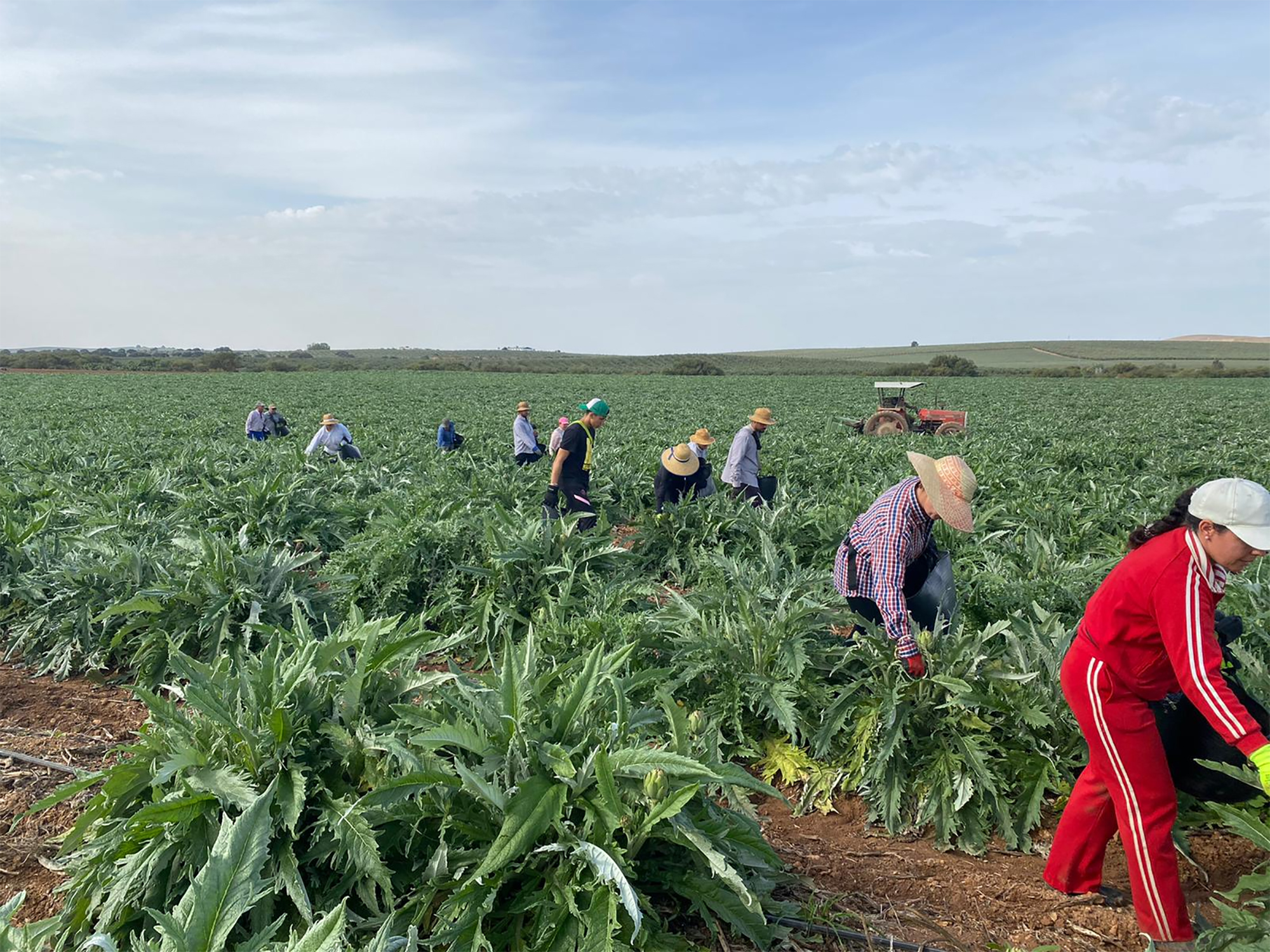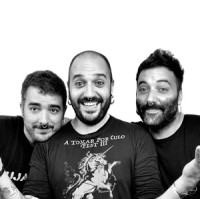A cooperative, two wheels and dignity
- The dealer is the new protagonist of the film. For decades he has been working on this role, but always in the background. Factors such as the Internet gave the character the first impulse and the pandemic has rounded up the play, until it brought the dealer to the front line. It's gained space on stage. Yours is an important role. However, the other actors have better caching, are working in more dignified conditions and the public’s acceptance is also greater. There is, however, a beginning to open up new opportunities to return the distribution and respect and dignity to the work of the distributor.
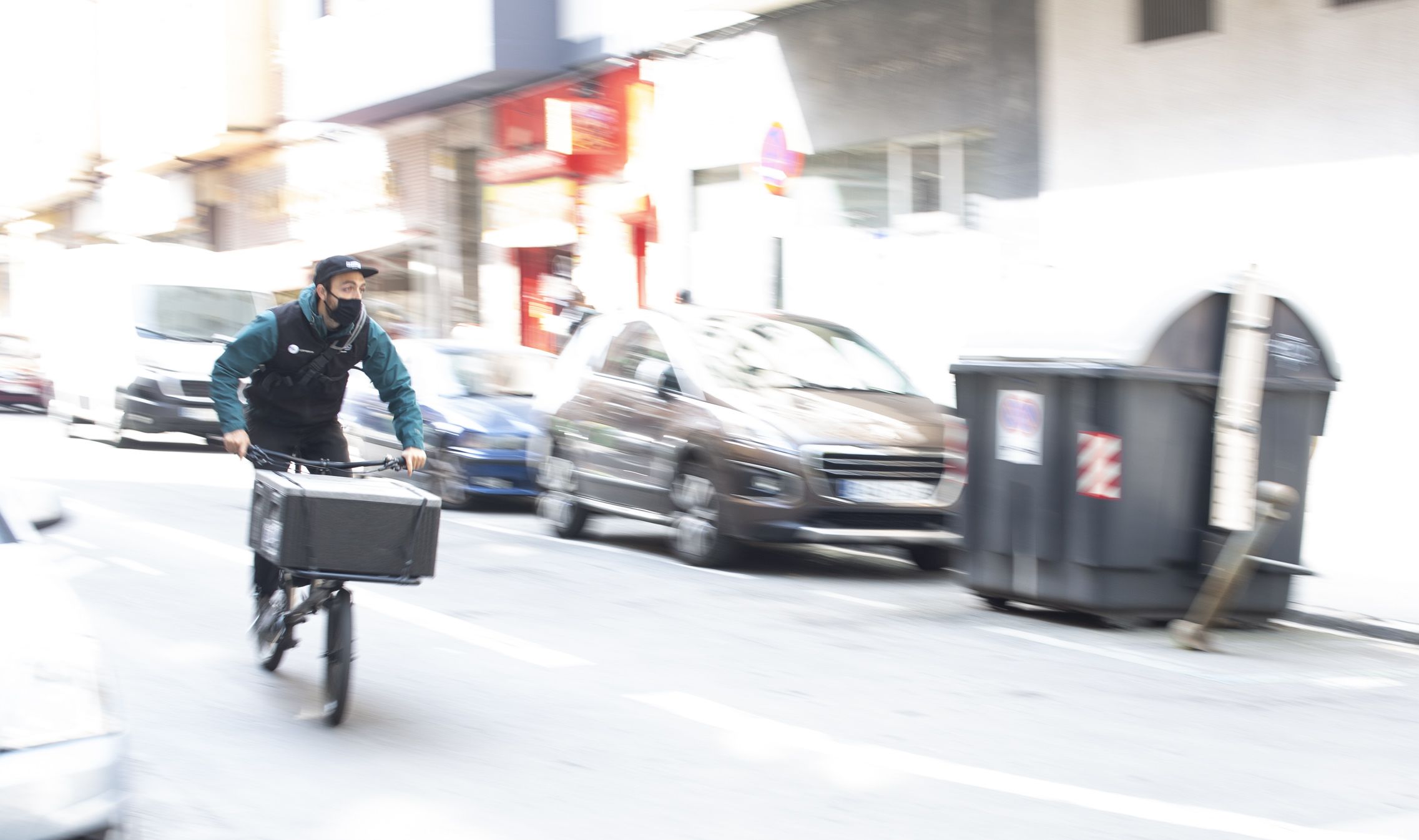
More and more people are using bicycles as a distribution vehicle. The alternative to the precarious sector has been found on two wheels. The Joan cooperative is one of those who has taken the step. Its work centre is Vitoria-Gasteiz. Paul Iano, a collaborator of ARGIA and one of the founders of the cooperative Joan, has given us some keys to this report, along with Juan Latorre Irigoien, who knows the situation of the sector.
Iano, of American origin, knows perfectly in his hometown the neighborhoods and villages destroyed by companies like Amazon or Microsoft, as well as the beginnings of Airbnb or Uber. He left the country when they began to see the first effects of the latter, but left him on the radar. Quickly identify these business models. He has worked from Glovon and Telepizza, among others, from his residence in Euskal Herria, and he has told what the people who are part of it live (you can read the ‘Glovolization’ report published in 2019 and the ‘The Secret is in Precariousness’ report published in 2020).
Algorithmic performance has been the next step for those who have managed to reduce the rights of increasingly drowned workers and consider work to be normal for the benefit of a few. They have devised a new system of precarization of the working class, as if the rules were imposed by “harmless random algorithms”, while the owners wash their hands. They make us believe that the decision is not in their hands, that it is algorithms that decide one or the other. Who program these algorithms?
"The worker becomes almost part of a video game. If you're not active in certain hours, you'll lose points and go down the list."
The worker almost becomes part of a video game. They give you the opportunity to start working without passing great tests. Download and start the app. They tell you that you will be able to put the schedule you want, that this or another day there are no problems to take party... but once you start getting started, you will realize that there is that possibility, but if you are not active in certain hours you will lose points and you will come down on the list, so you will not be touched by distributions close to the area you decide, and everything has a similar method.
All of this is not directly told by your boss in an office. You depend on the algorithms mentioned, and there's no escapes. Video games have been underlined before and not in vain, many of these companies have departments that study game theory, that analyze the psychology behind addiction. What you're going to use to catch the worker in the game.
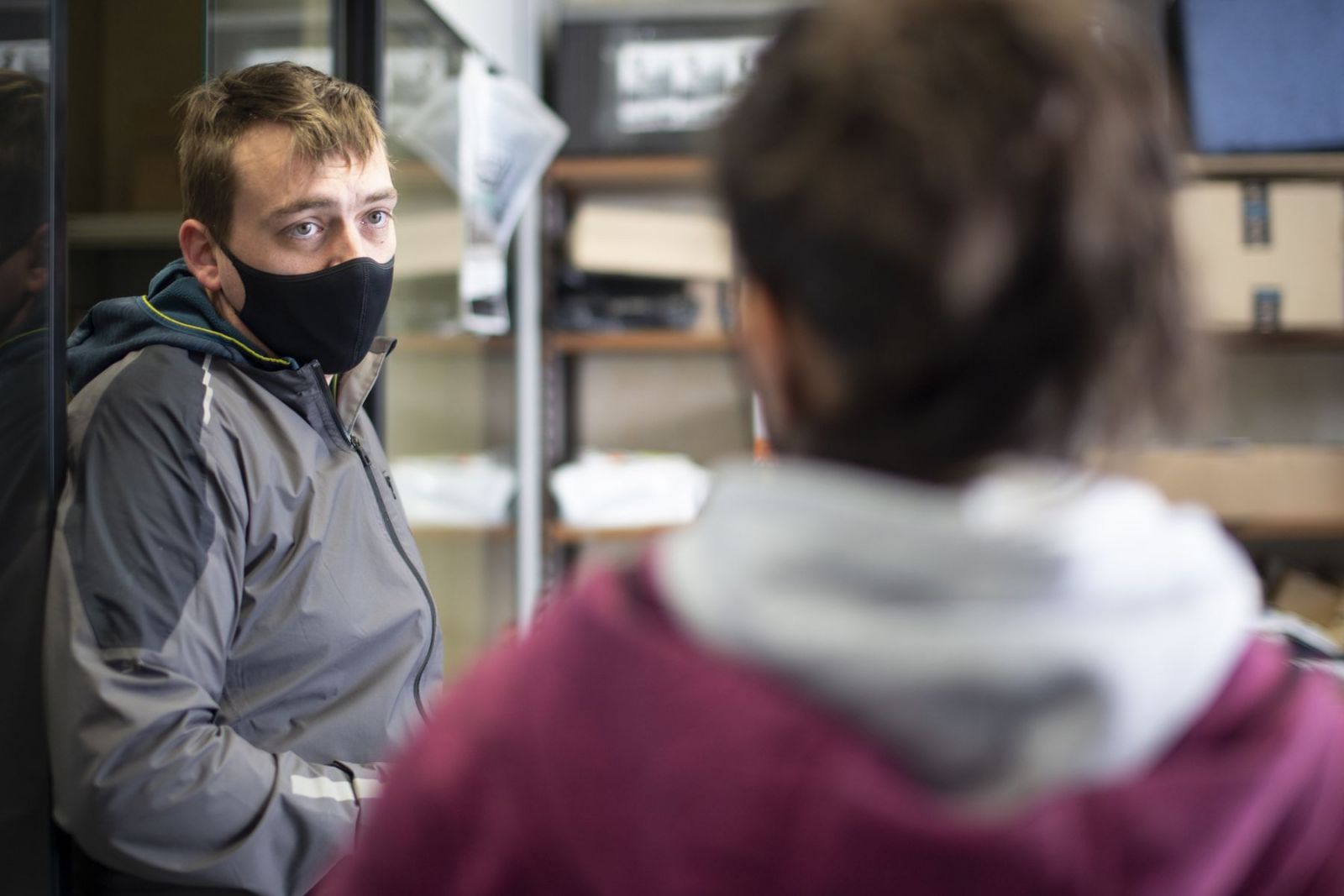
This creates the competitiveness that wakes up every game. Among workers. “They believe that each worker has an individual responsibility to accept these conditions, but we must understand that it is a collective responsibility,” Paul Iano stresses. This model is more easily introduced into an individualistic culture, as is the case in the United States. There is always a response to a protest or impediment: “We modify the algorithms.” But the game goes on.
While Internet sales have experienced dramatic growth, the working conditions of distributors do not follow the same trend. The sector is dominated by precariousness and the crisis has exacerbated the situation. But where are those benefits going? In the pockets of a few who get rich by making the poor poorer. To the portfolio of unscrupulous people to step the worker to take the witness of the Facebook phenomenon. To Amazon. The money that used to remain in local trade is the money that now goes to the multinational company, because we have no more money than before, we have changed the point of sale.
"Many of these companies have departments that study game theory, that analyze the psychology behind addiction. They'll use it to catch the worker."
The fact
that the Galos vs. the Romans are not the First has its advantages. The results and conclusions of the above can be seen. Then there are two options: steer everything that touches him in front and climb him up until the door of the house is opened and let himself enter into the interior until what has been left is destroyed, or being aware that the excavators have a huge force and that it is difficult to stop, try, first, to save your small environment and gradually open up. What is difficult for the Galos to derail the Roman Empire? Yes, but you can look for small gaps to live with dignity without the dependence of the big one.
At the heart of the pandemic created by COVID-19, the Eramen cooperative was launched in Vitoria. Juan Latorre met in northern Europe bicycle distribution companies, in decent conditions, and seeing the decline of the sector, he saw the opportunity to organize something similar. “Empty streets, trade and closed bars, carts full of carts running through the bumps. That was the day to day of the lockdown and we've seen it at the extremes. We live in an increasingly individualistic society, division is a precarious work, companies like Glovo are gaining ground and it is time to take one path or another”, he explained. “If not, where are the relationships left? Where is the street? Our goal is to make this risk visible, there has not been an opportunity left at home, to close the door and to worry about ignorance. In Euskal Herria there is still a labor struggle, a collective struggle, and the cooperative movement is not something distant,” he continued. “We found it a formula for restoring respect and dignity due to distribution and distributor and advancing our lives in a more sustainable and just way, offering an alternative to people,” adds Paul Iano.
"If conditions are decent, it's the most beautiful job I've ever had."
It is work that is not seen and that in society it is not treated as professional work. Who has never passed from the head “the poor, only has to do a separation while you get something else” or something like that. The delivery of tip to the dealer is not casual. And part of it really does, because it's not uncommon that in many cases this work is done because it has no choice. “If we see a dealer on top of the bicycle, it’s normal for him to work in precarious condition. But not by the bicycle, but by the distribution, because the work is precarious,” Iano wanted to clarify.

That's why they've created the Joan cooperative. Professionalize distribution, both from the service and from the public perspective. Create decent jobs in areas where adequate working conditions are lacking. To fill gaps. Sustainably, by boosting local trade so that any other vehicle can bike as far as it does not arrive. They want to promote a culture, beyond bicycle being an instrument for sport or work, that they feel part of life, that the city is also understood from the perspective of the two wheels. “If conditions are decent, it’s the most beautiful job I’ve ever had,” Lator explains, adding: “It’s the most efficient vehicle for a city; the non-polluter, the fastest and the most suitable vehicle to access places where no other vehicle arrives.”
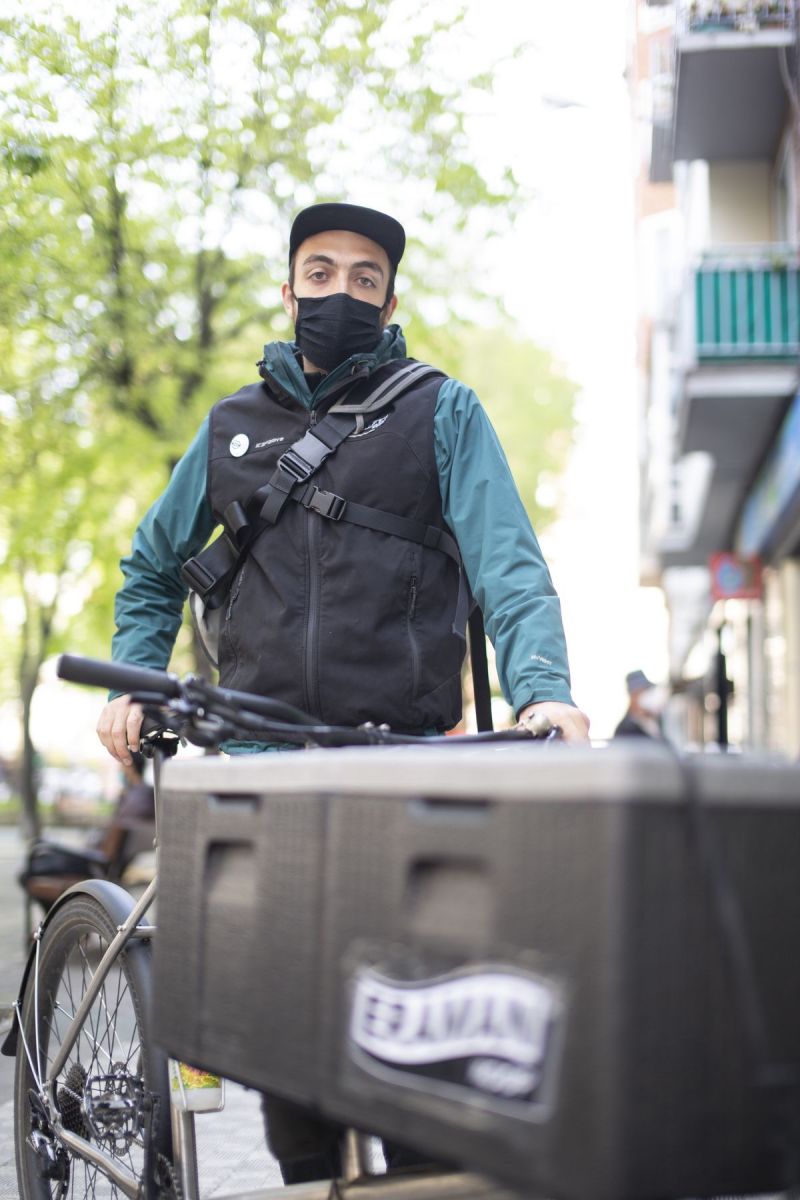
Complexity of logistics The
image of the messenger who knocks on the door of your home in the ads and delivers the package with a beautiful smile doesn't count too much truth. At least not the whole truth. Because it's the only thing that the dealer does that gets into the heads of the people. But it's followed by complete, complex logistics. Iano and Lator have highlighted the need to make these underlying works visible, in the hope that this will also professionalize the dealer's imaginary. “In addition to the administrative tasks, it is necessary to organize the day-to-day, for when we go out to the distribution, for the distribution of parcels to be efficient it is necessary to plan the route and to fit the loads in the box. It takes a lot of mental work. If they are repaired in restaurants, it takes people to keep their heads cool in rush hours so they don’t delay the entire distribution.”
Nor can it be denied that new technologies open up some possibilities
by making proper use of good and bad technology. What the key will be used for. While some set up oppressor companies made up of algorithms adapted for a few, others are creating platforms to make it easier for everyone to do their work together. They have created the application of co-operatives for the distribution and sharing of values by bicycle: Coop Cycle. It is not only the shared tool they need to perform the administrative tasks, but also the space that connects customers with the dealer. The Vitorian cooperative Joan, referred to in the report, and the bilbaíno collective Botxo Riders are already present.
"Where are those benefits going?" To Amazon. The money that used to remain in local trade is the money that now goes to the multinational company, because we have no more money than before, we have changed the point of sale"
Although the Coop Cycle platform currently exists both, in Euskal Herria more companies are emerging from this distribution model. The Badoa cooperative has just been established in Bidasoaldea and Eruen (probisional name) is also in operation in Arrasate, although it is not yet cooperative, the first divisions are being carried out. There are projects that have not yet begun to walk but that go the same way in more localities.
“It’s time for people to choose and money is no excuse, because our distribution system is no more expensive,” Lator stressed.
They see local projects better than the
dissemination of the Sole Federation of Distributors. By towns, cities or valleys, but it's better than the local than the one that comes from the outside. It is the most sustainable distribution system in each area. But they also want to look for alternatives to a broader offer: What will happen if you have the possibility to make a distribution in the Basque Country? In these cases they want to create a federation, made up of independent members, which will unite them for specific situations and enable them to make a strong and broad offer.

THE ATHERPEA
COOPERATIVE Paul Iano and Juan Latorre Irigoien. First distribution in May 2020.
What do they distribute? In this sector, as in all others, the important thing
is diversification. If you focus on the distribution of a single product, the risk of falls is higher. Everything has to be done. In our case we have made a big bet with the press. Every morning we distribute Berria and every week ARGIA. At first we struggled to find a sustainable distribution system suitable for both parties, but we have achieved it and it is working. In addition, the Koiki platform distributes the Vitoria-Gasteiz parcel and offers the possibility to whoever wants to ship. We are working with about 35 restaurants and we share with customers the distribution of some of their shops.
How do you organize yourself?
We are now 14-15 workers in total, taking into account partners and workers. The objective is always to offer concrete shifts to workers, to avoid the health economy, to have professional and lasting work, that is not a passing job, to be able to live from here. We try to find tasks tailored to our capabilities and needs.
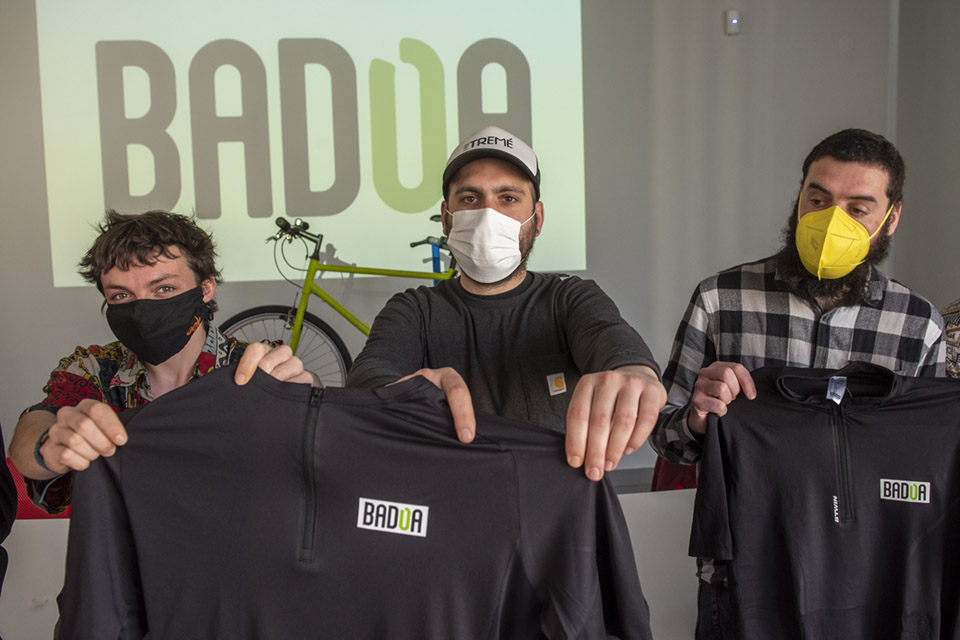
COOPERATIVA BADOA
Nestor Uranga. First distribution in May 2021
What do they distribute?
We've started working with the press. We have reached the treatment with ARGIA and in May we have begun to distribute the magazine in Irún, Hondarribia and Hendaia. I've already worked with the cooperative Joan in the distribution of the press in Hondarribia and Andoain, and from there came the idea of creating Badoa.
The next step is the jump to restaurants and local trade. There is a growing habit of ordering and offering the service home and we want to be there.
The
BDS cooperative of Bidasoaldea, based on the values of the Transformative Social Economy, held a call for training in which Badoa was conceived. At the moment we are 3 or 4 people and we do all kinds of jobs: commercial, distributor, mechanics... The BDS is helping us in the management and we are thankful that we find the Transfer that has already traveled, for example, when organizing our logistics, is a great support; “How are we going to transport this? what is the best way to assemble bicycles?”... there are many doubts of this kind.
We believe in the territory, in the closest part, in local sustainability, and we have seen with the Badoa cooperative the possibility of creating decent jobs from those values.
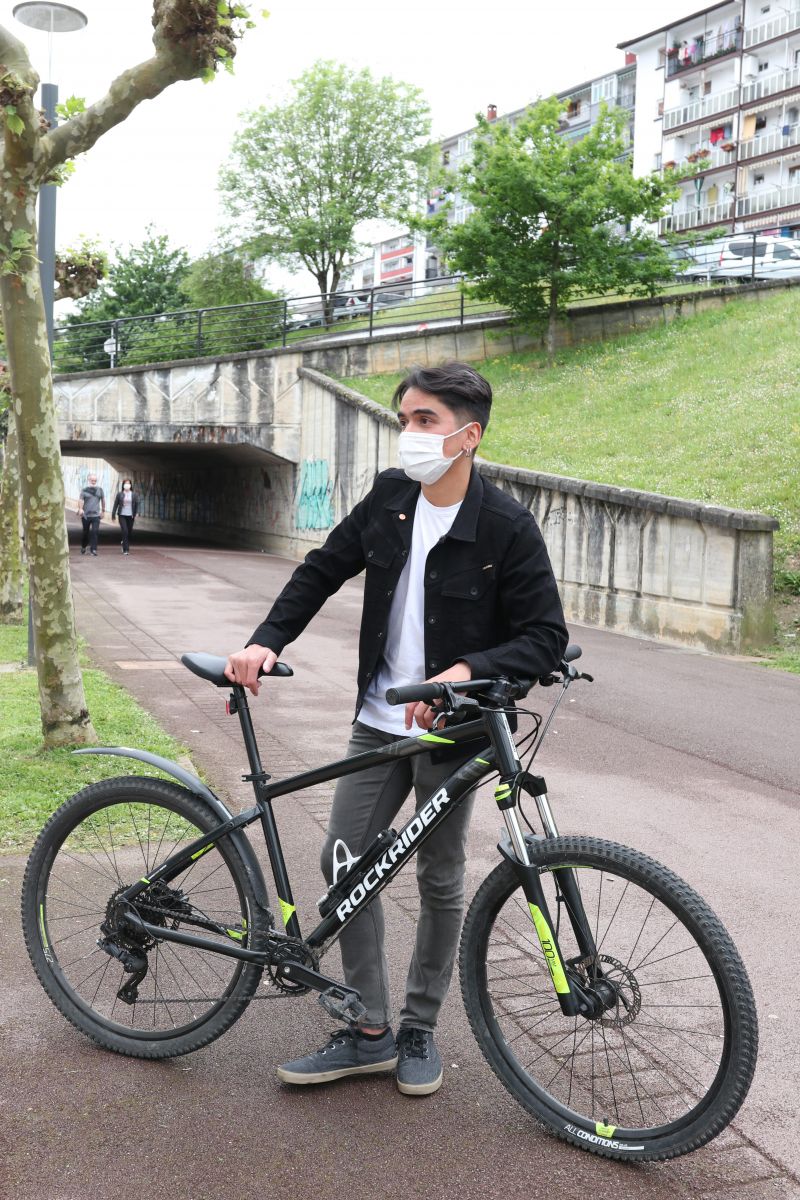
ERUEN
Cristian Vargas. First distribution in October 2020.
What do they distribute?
Until recently we have distributed the Berria newspaper every morning and in early May we have started the distribution of ARGIA. Initially I worked as a member of the Erama cooperative, who were offered as distributors of Mondragón.El objective
is the distribution and parcel of restaurants in the near future.
How do you organize yourself?
We are at the beginning. I'm still active on my own, although there are two other people willing to start working, who love my bike and I, who want to bet on a sustainable model. For us, the Gauzatu Cooperative is the Compass. We want to get there, but we have funding difficulties. We're young people and we don't have capital. Fortunately, we have the support and help of the Vitorians. So, it's up to us to work hard to create a cooperative and take the leap to have our place.
Gure lurraldeetan eta bizitzetan sortzen diren behar, desio eta ekimenen inguruan gero eta gehiago entzuten dugu harreman eta proiektu publiko-komunitarioak landu beharraz, eta pozgarria da benetan, merkaturik gabeko gizarte antolaketarako ezinbesteko eredua baita. Baina... [+]
I write these lines the day after the elections to the European Parliament, the dark times, the triumph of the Reactionary International in the elections to the European Parliament. It was already in advance and it is the confirmation of the conservative phase we live in, but it... [+]
One of the major projects developed by Olatukoop with other actors is KoopFabrika, a programme created in 2017 with the aim of boosting social entrepreneurship and which is currently underway.
Initially, the first idea was that the cooperatives and agents that gathered around... [+]
Bizitegi molde kooperatiboak zabalduz doaz Ipar Euskal Herrian. Euskal Hirigune Elkargoko azken biltzar nagusian Nicole Etxamendi, Itsasuko hautetsiak "Bizi lagun" kooperatibak kontutan hartu behar zirela eta alternatiba ona direla azpimarratu zuen.
When I am asked about cooperativism and the transformative economy through the cooperative Talaios and Olatukoop, I say that it has been an opportunity to begin the path to emancipation through work and collective action. And on that road it has been very important to work on... [+]
At the beginning of July we learned that the pastries and sweets factory De Paula will be closed in our town, which is essential for many workers’ houses. They say that pastry shops and, of course, retired workers have every right to rest, but we are going to lose an important... [+]
We insist that we are no longer a partnership or a collective. We went, yeah. We didn't have a collective way of being activist transmaribibollos (no, we're not very supportive of individual activism). We leverage the partnership to bill.
But in 2020, we went from being... [+]









